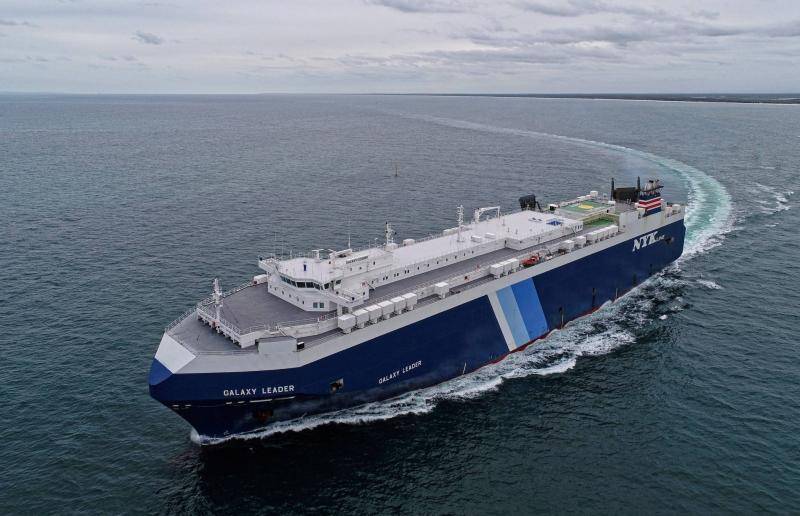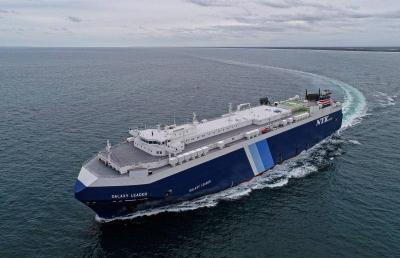Four Iranian sources and a diplomat reported that Chinese officials have requested their Iranian counterparts to assist in restraining attacks launched by the Iran-aligned Houthis on ships in the Red Sea, warning that otherwise, trade relations with Beijing could suffer. The informed Iranian sources indicated that discussions regarding the attacks and trade between China and Iran took place during several recent meetings in Beijing and Tehran. The sources refrained from providing further details about when the meetings were held or who participated.
An Iranian official familiar with the talks, who spoke to Reuters on the condition of anonymity, said, "Basically, China is saying that if our interests are harmed in any way, it will affect our business with Tehran. Therefore, ask the Houthis to exercise restraint." The attacks, which the Houthis claim are aimed at supporting Palestinians in Gaza, have led to increased shipping and insurance costs due to disruption of a major trade route between Asia and Europe that ships from China use extensively.
The four sources noted that Chinese officials did not make any public comments or specific threats regarding how trade relations with Tehran might be affected if Chinese interests were harmed as a result of the Houthi attacks. While China has been Iran's largest trading partner over the past decade, their trade relations are unbalanced. For instance, Chinese oil refineries purchased more than 90% of Iran's crude oil exports last year, according to tanker tracking data from the analytics firm Kpler, as other customers have distanced themselves from Iranian oil due to U.S. sanctions, allowing Chinese firms to benefit from significant discounts.
However, Iranian oil accounts for only 10% of China's crude oil imports, and Beijing has a range of suppliers that can fill any shortfall. The Iranian sources indicated that Beijing made it clear it would feel greatly disappointed towards Tehran if any ships linked to China were attacked or if the country's interests were harmed in any way. One informed Iranian source pointed out that although China is important for Iran, Tehran has allies in Gaza, Lebanon, Syria, Iraq, and the Houthis in Yemen, and its alliances and regional priorities play a key role in its decision-making.
In response to a request for comment on meetings with Iran to discuss the Red Sea attacks, the Chinese Ministry of Foreign Affairs stated, "China is a loyal friend to Middle Eastern countries and is committed to enhancing regional security and stability and pursuing common development and prosperity." It added to Reuters, "We firmly support Middle Eastern countries in enhancing their strategic independence, uniting, and cooperating to solve regional security issues." The Iranian Ministry of Foreign Affairs could not be reached for comment.
**Resistance Axis**
U.S. and British forces' targeting of Houthi positions in Yemen this month has failed to stop the group's attacks on ships. The Houthis control a large part of Yemen, including the capital Sana'a and a significant section of the country's coastline along the Red Sea at the Bab-el-Mandeb Strait. The Houthis, who emerged in the 1980s as an armed group opposing Saudi Arabia's Sunni religious influence in Yemen, receive arms, funding, and training from Iran and are part of the anti-Western resistance axis against Israel.
A senior U.S. official indicated that Washington has asked China to leverage its influence over Iran to convince it to rein in the Houthis. This request was made during discussions, including talks this month between Secretary of State Antony Blinken and National Security Advisor Jake Sullivan with Liu Jianchao, head of the International Department of the Communist Party of China.
An Iranian official stated that Chinese officials discussed their concerns extensively during the meetings but never mentioned any requests from Washington. On January 14, Chinese Foreign Minister Wang Yi called for a halt to attacks on civilian ships in the Red Sea and for the maintenance of supply chains and the international trading system, without mentioning the Houthis or Iran.
Victor Gao, a professor at Suzhou University in China, noted that as the world's largest trading power, Beijing has been significantly impacted by shipping disruptions, and restoring stability in the Red Sea is a priority for it. However, Gao, a former Chinese diplomat and advisor to the Saudi oil giant Aramco, added that Beijing would consider how Israel treats the Palestinians to be the root cause of the Red Sea crisis and would not want to publicly blame the Houthis.
A spokesperson for the U.S. State Department declined to comment when asked about discussions between Iran and China on the matter. A knowledgeable diplomat mentioned that China is engaging with Iran on the issue, but it is unclear how serious Tehran is about heeding Beijing's advice. Two officials from the internationally recognized Yemeni government, which opposes the Houthis, stated they are aware that several countries, including China, are trying to influence Iran to curb the Houthis.
Analysts Gregory Brew from Eurasia Group and Ali Vaez from the International Crisis Group indicated that China may have leverage over Iran due to its oil purchases and because Tehran hopes to attract more direct Chinese investments in the future. However, they pointed out that China has so far hesitated to use its influence for several reasons. Vaez stated, "China prefers to benefit for free from U.S. protection of navigation freedom in the Red Sea" by delivering some strikes against the Houthis, also acknowledging that Beijing realizes Tehran does not have full control over its Yemeni allies.
**Influence is Not Absolute**
Houthi spokesman Mohammed Abdul Salam stated on Thursday that Iran has not yet conveyed any message from China regarding the attacks. He added, "So far we have not received any comments from the Iranians. I believe they will not inform us of such a request, especially since Iran's declared position is to support Yemen."
The four Iranian sources noted that it remains unclear whether Tehran will take any action following discussions with Beijing. For Iran, the stakes are high as China is one of the few powers capable of providing the billions of dollars in investment Tehran needs to maintain its oil sector's capacity and keep its economy afloat. China's influence became clear in 2023 when it facilitated an agreement between Iran and its regional rival Saudi Arabia to end years of hostility.
However, one informed Iranian source stated that despite strong economic ties between China and Iran, Beijing's influence on Tehran's geopolitical decisions is not absolute. Some within Iran's ruling establishment have questioned the significance of the partnership with Beijing, pointing to a relative decline in non-oil trade and investment since the two countries signed a 25-year cooperation agreement in 2021. Iranian state media report that Chinese companies have invested only $185 million since then. Iranian state media also reported last year that Iran's non-oil exports to China fell by 68% in the first five months of 2023, while imports from China rose by 40%.
In contrast, last year Chinese companies committed to investing billions in Saudi Arabia after the two countries signed a comprehensive strategic partnership in December 2022. Two Iranian sources indicated that while China cannot be ignored, Tehran has other priorities to consider, and its decisions are shaped by a complex interplay of factors. One of them stated, "Alliances and regional priorities, as well as ideological considerations, play a significant role in Tehran's decisions." Another mentioned that Iranian rulers must adopt a precise strategy concerning the Gaza conflict and Houthi attacks, stressing that they will not abandon their allies.
The Iranian sources reported that Iran's role as a leader of the "resistance axis," which includes the Houthis, Lebanon's Hezbollah, Hamas, and armed factions in Iraq and Syria, must be balanced with the need to avoid being drawn into a regional war over Gaza. One source stated that Tehran's messages to the Houthis and about them require a degree of denial regarding how much control it has over them, while also necessitating the ability to claim some credit for their anti-Israel actions.




